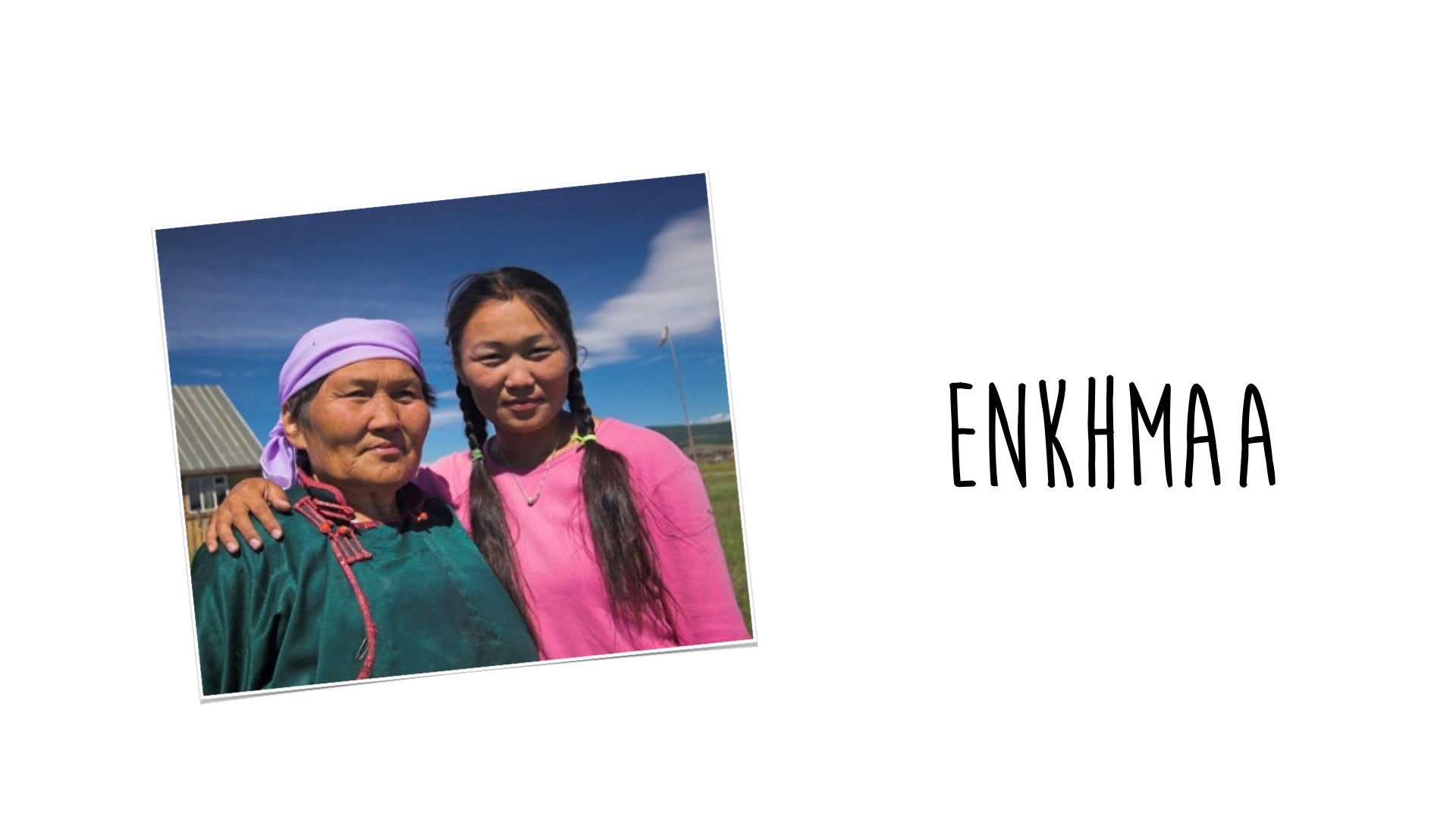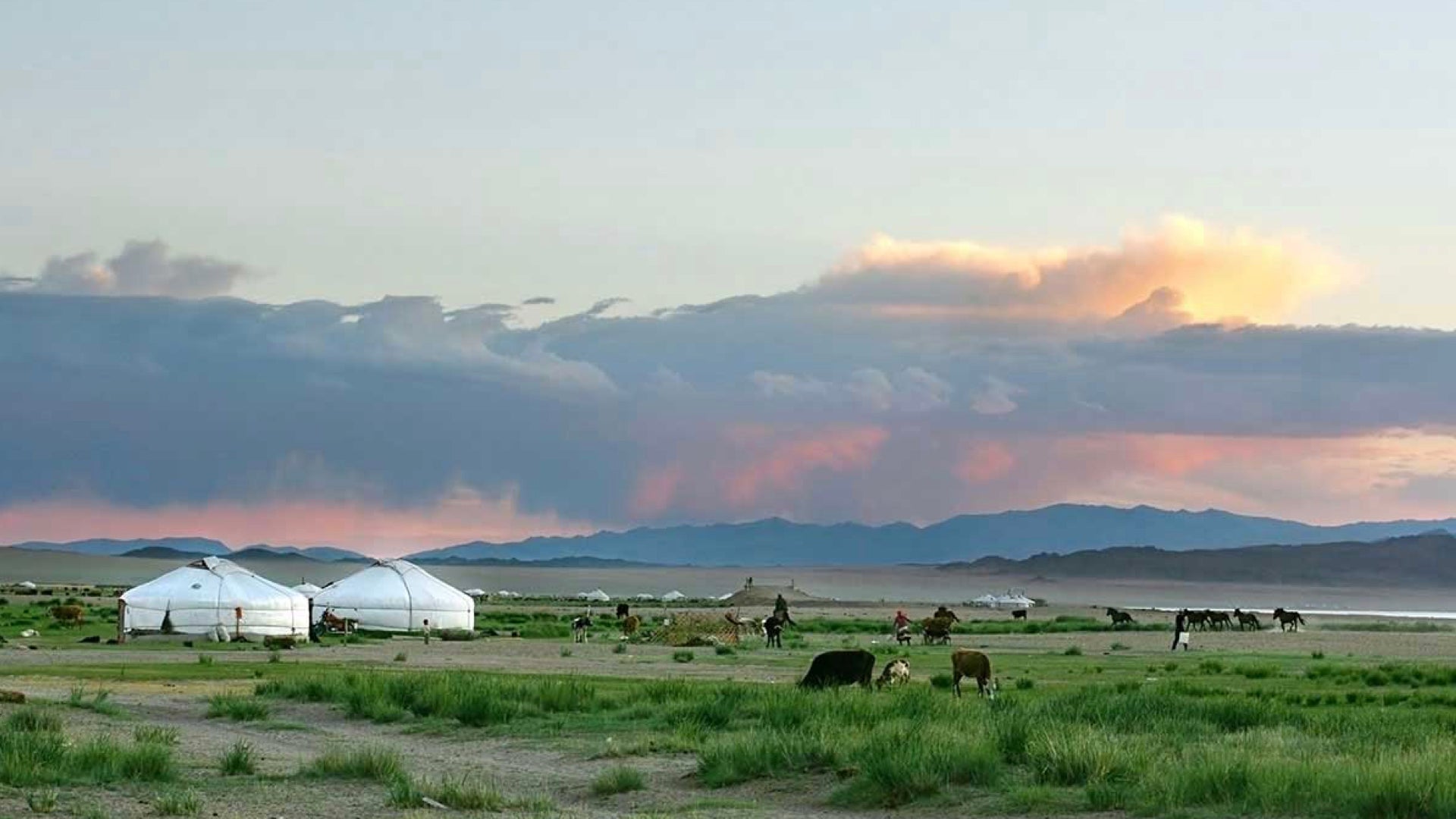Mandukhai Pilot Project
Mandukhai pilot project: an artificial intelligence chatbot bridges distance and cultural taboos to deliver 24/7 advice to Mongolian girls
“I didn’t have someone to consult when I became pregnant”
Enkhmaa Baatarkhuu is 18 years old and lives with her son and parents in the Nomgon district of Ömnögovi province. After graduating from ninth grade, Enkhmaa went to Ömnögovi to study, but she got pregnant at the start of tenth grade and left school. She recently took part in a pilot project with UNFPA to try out a chatbot, a new way of getting information about sexual and reproductive health. She used the Mandukhai chatbot and learned a lot about what services are available to girls like her. Enkhmaa would like to see the Mandukhai project expand so that Mongolian girls can be better informed about contraception and reproductive rights.
“I didn’t have someone to consult when I became pregnant, because I was living with relatives in the provincial centre and was afraid to tell my parents, who were living with my siblings far from me,” she says. “I left school and went back to the soum [country]. My son is almost 1 year old now. I wish I could have studied further with my friends.”
Enkhmaa has found it hard being dependent on her parents. There’s no school for her to continue her studies in her district, but she plans to go to Ulaanbaatar, the capital city, to work when her son is 2 years old; her parents will help with childcare.

She says that money worries played a part in her becoming pregnant. “I was financially dependent and used to worry about costs when seeking sexual and reproductive health services when I lived with my relatives in the provincial centre,” she says. “I didn’t know that there was an adolescent health cabinet where I could get free services and counselling.”
“I didn’t have much information about contraception. I found out I was pregnant when I was three months along.”
Without resources or information, she was left in the dark as she adjusted to school and city life. “I didn’t have much information about contraception,” she remembers. “I found out I was pregnant when I was three months along.”
She says there is a lack of comprehensive information available to girls about where and how to access free contraception. Enkhmaa says there is a taboo on adolescent sexuality in Mongolian culture, which prevents girls from seeking information and accessing counselling.
She did not study health education when she was in school and says the provision of health education depends on where you live. Like many things in Mongolia, it’s hardest for girls in rural areas, where services are limited. “I used to get information from my friends,” she says. “We used to talk mostly about love, relationships and menstruation. We would also get information from the Internet.”
Enkhmaa was one of a group of girls who trialled the Mandukhai chatbot developed by UNFPA as part of a pilot demonstration of what the platform could do when Mongolian girls asked real questions. “I wish Mandukhai had been piloted earlier,” she says. “She provided me with accurate information and they [UNFPA] said soon she will be able to refer us to health-care providers, with their contact details and locations on Google Maps.”
"Mandukhai will be my friend and I’ll tell others to consult her about adolescent sexual and reproductive health.”
Mandukhai is based on Facebook, so girls are able to ask questions on family planning and sexuality and reproductive health round the clock. Through messaging with Mandukhai, Enkhmaa learned that provincial hospitals distribute free contraceptives through primary health-care centres.
Enkhmaa found the whole experience easy and helpful. “I will continue using Mandukhai,” she says. “She will be my friend and I’ll tell others to consult Mandukhai about adolescent sexual and reproductive health.”

Enkhmaa says that the answers provided by Mandukhai were accurate, easy to understand and short, which was good because “we don’t read long answers”. She explained that the openness and confidentiality of the chat made a big difference: “The most important thing was that Mandukhai would keep my secret. Girls prefer to chat online rather than having a face-to-face discussion when it comes to sexual and reproductive health issues.”
She points out that the lack of openness about reproductive health creates cultural barriers with serious consequences: “Because of the limited knowledge of family planning and access to services, girls like me get pregnant earlier. We always feel embarrassed to talk about our sexual health or worry about the confidentiality of services in small communities.”
Enkhmaa thinks that the need for a platform such as Mandukhai is urgent, because the lack of information is disrupting girls’ lives. “We need counsellors like Mandukhai,” she says, “to access information so we can make informed decisions that protect us from unwanted pregnancies, unsafe abortions, and sexually transmitted infections.”

Learn more
When Chatbots answer their private questions
Sexual and Reproductive Health in A Digital Age
The Opportunity for Digital Sexuality Education in East Asia and the Pacific
In Mongolia, students attend boarding schools until ninth grade. Each year, around 24,000 students graduate from these boarding schools. Not all students enter higher education and complete secondary school. There is a threshold that allows only sufficiently qualified students in the ninth grade to continue their education at high school. Therefore, some students don’t have an opportunity to obtain a secondary education. The majority of these students become herders and a few of them continue their studies with technical and vocational education and training. Enkhmaa was one of the qualified students who continued her studies to obtain a secondary education.
This initative was supported with a grant from the UNFPA Innovation Fund.


